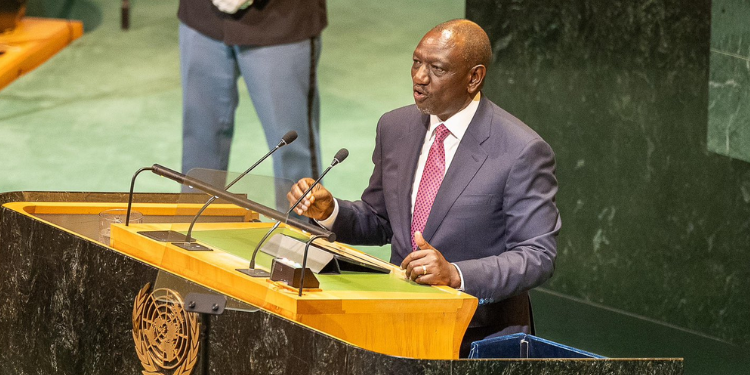President Ruto: Kenya’s Diplomatic Vanguard in Climate Action and Financial Reform
Since taking office, President William Ruto has emerged as a pivotal figure in Kenya’s diplomatic landscape, actively advocating for climate action and championing African-led initiatives. His dedication to these causes has not only enhanced Kenya’s international standing but has also positioned him as a leading voice among African leaders seeking substantial reforms in global finance.
Elevating Climate Diplomacy
President Ruto has been vocal about the pressing climate crisis, emphasizing that Africa stands as one of the regions most susceptible to its impacts while receiving disproportionately minimal funding for climate initiatives. Addressing global powers, Ruto urged wealthier nations to commit to investing in Africa’s adaptation and mitigation strategies, reinforcing the need for justice in climate financing.
At the Africa Climate Summit in Nairobi in September 2023, President Ruto underscored the immense challenges Africa faces concerning climate change while also highlighting the potential advantages of transitioning to cleaner energy sources. This discourse continued at the Second Africa Climate Summit in Addis Ababa, where he stressed the importance of a united front in addressing climate issues.
“The lack of progress stems from disjointed approaches. Now is the time for Africa to coalesce around our climate strategies to foster beneficial outcomes,” Ruto articulated.
Advocating for African Inclusion in Climate Forums
Beyond addressing immediate challenges, Ruto has pointed out the critical need for African representation in global climate discussions to ensure that the continent’s unique perspectives and necessities are considered. His stance advocates for Africa to have its rightful place at all significant international climate negotiation tables.
Reforming Global Financial Systems
Ruto’s advocacy isn’t confined to climate action; he is also a prominent proponent of financial reforms within the global economic system. During his address at the United Nations General Assembly on September 24, 2025, he decried the existing structures rooted in the Bretton Woods system, asserting that they perpetuate inequalities that disadvantage developing nations.
“These institutions were designed for a different world; the policies reflect the interests of wealthy nations while neglecting the needs of poorer economies,” Ruto emphasized. “The disparity between the interests of shareholders and stakeholders must be addressed.”
Moreover, he highlighted alarming practice disparities during the International Monetary Fund (IMF) allocation of special drawing rights, where a staggering 64% benefited wealthy countries, leaving the rest with insufficient aid, thereby illuminating the urgent need for financial equity.
Towards Financial Independence for Africa
In his vision for Africa’s future, President Ruto champions the necessity for the continent to pursue financial autonomy. He praised the formation of the Alliance of African Multilateral Financial Institutions, initiated in 2024 under the African Union, as a significant stride towards achieving this goal.
“Africa is not waiting for external prescriptions; we are actively fostering our own capabilities to secure our economic future and accelerate our development,” Ruto stated.
With institutions like AfriExim Bank, the Africa Finance Corporation, and the African Development Bank among its ranks, this alliance symbolizes Africa’s determination to mobilize resources effectively and strengthen its trade networks.
Conclusion
President William Ruto’s active advocacy for climate action and financial reforms reflects not only Kenya’s burning issues but resonates deeply within the wider African context. As he continues to navigate these complex yet vital arenas, his leadership may pave the way for meaningful progress and empowerment across the continent.
